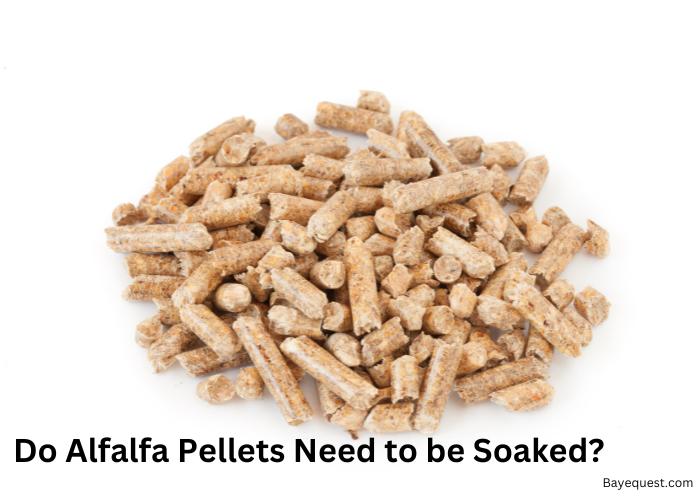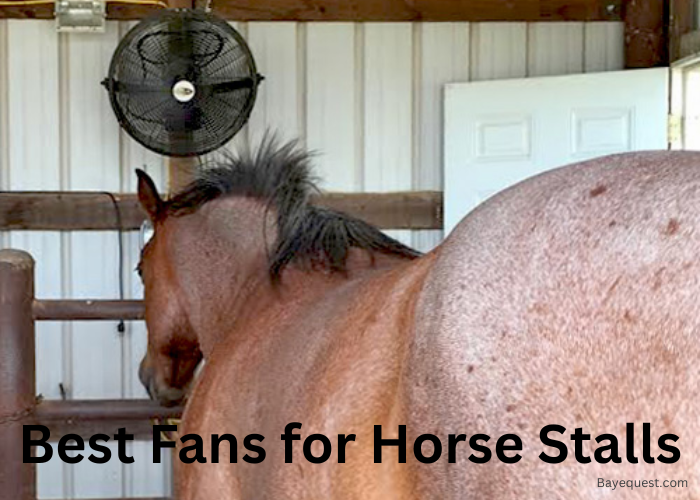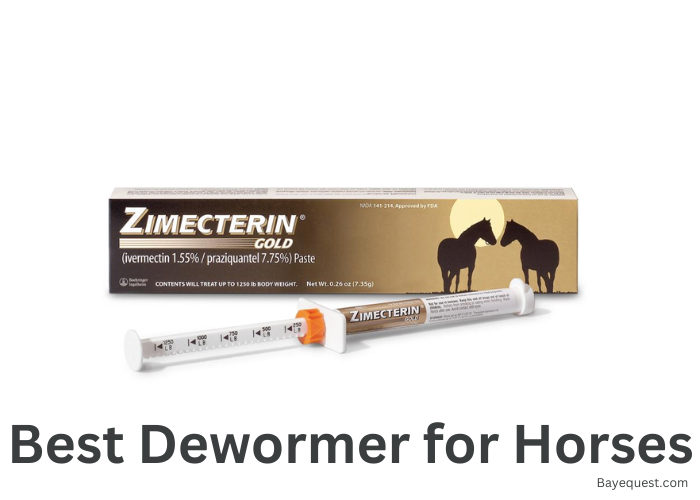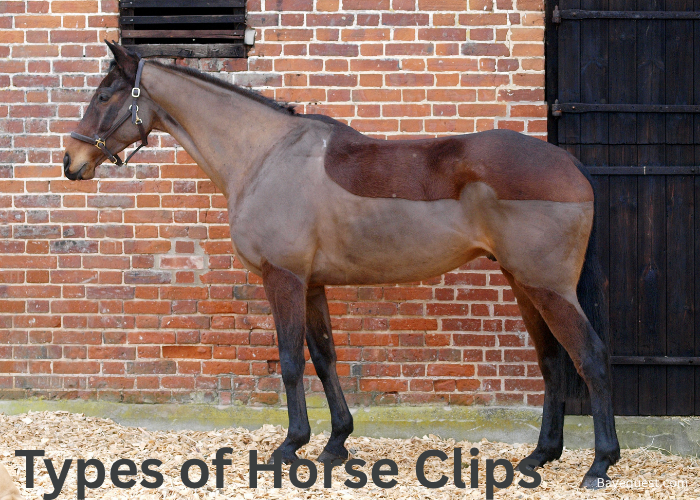Alfalfa pellets are a favorite in many feeding routines, but there’s one question that stirs up debate—do they need to be soaked?
Some swear by it, while others skip the extra step.
If you’ve ever dealt with picky eaters, horses with sensitive stomachs, or simply want to know what’s best for your herd, this topic might surprise you.
Let’s break it down and see when soaking is a must and when you can save yourself the trouble.
Your horse’s health could depend on it.
Do Alfalfa Pellets Need to be Soaked? Key Takeaway
Yes, alfalfa pellets should be soaked to prevent choking and aid digestion, especially for horses with dental issues or those prone to eating quickly. Soaking softens the pellets, making them safer and easier to consume. While soaking isn’t always necessary, it’s a recommended practice for horses with specific feeding needs.
What are Alfalfa Pellets?
Alfalfa pellets are a type of feed made from compressed alfalfa, a nutrient-rich forage crop.
They are processed by cutting and drying alfalfa, which is then ground into a fine meal and pressed into small, dense pellets.
These pellets are packed with essential nutrients, including protein, fiber, vitamins, and minerals, making them a popular choice for horses, livestock, and even rabbits.
Their compact form makes storage and handling easy, and they provide a consistent, balanced source of nutrition.
Alfalfa pellets are often used as a supplement or to replace hay, especially in areas where fresh forage is limited.
Should You Soak Your Horse Alfalfa Pellets and Cubes Before Feeding?
Yes, you should soak alfalfa pellets and cubes before feeding, especially for horses prone to choking or those with dental issues.
When dry, pellets and cubes can expand in the throat or stomach, increasing the risk of blockages.
Soaking softens them, making it easier for your horse to chew and digest. It also adds moisture to their diet, which helps with hydration.
However, if your horse has no history of choking and can handle dry feed, soaking may not be necessary.
Always consider your horse’s individual needs and consult with your vet for the best feeding practices.
The Importance of Soaking Alfalfa Pellets
Soaking alfalfa pellets can be a game-changer for your horse’s feeding routine.
When dry, these pellets are dense and can expand significantly when exposed to moisture.
This poses a risk of choking, especially for horses that tend to eat quickly or have dental issues.
Soaking softens the pellets, making them easier to chew and digest, reducing the risk of blockages in the throat or stomach.
Additionally, soaked pellets help keep your horse hydrated, particularly in hot weather or when fresh forage is limited.
This simple step ensures safer and more comfortable feeding.
How to Soak and Feed Alfalfa Pellets
Feeding your horse alfalfa pellets can be a nutritious addition to their diet, but soaking them first can make a big difference.
Here’s how to do it right.
1. Start with the right amount
Measure the exact portion of alfalfa pellets your horse needs. This depends on their size, activity level, and dietary requirements.
For a standard adult horse, start with 2-3 pounds per feeding, adjusting based on your vet’s guidance.
2. Choose the right container
Use a clean, sturdy bucket or large feed pan. Ensure it’s big enough to allow room for the pellets to expand once water is added.
3. Add water
Pour water over the pellets in a 1:2 or 1:3 ratio (one part pellets to two or three parts water).
If your horse prefers a soupy texture, add more water. If they like it firmer, stick with less.
4. Let them soak
Allow the pellets to soak for 10-20 minutes. Stir occasionally to ensure even absorption.
The soaking time may vary depending on the pellet size and temperature of the water—warm water works faster.
5. Check for consistency
The pellets should break down into a soft, mash-like texture with no hard chunks remaining. If they’re still firm, add more water and let them sit longer.
6. Serve fresh
Feed the soaked pellets immediately. If left too long, they can ferment or spoil, especially in warm weather.
Avoid preparing large batches in advance unless you can store them in a cool place.
7. Clean up
Remove any uneaten feed promptly to prevent mold or bacterial growth. Always clean the bucket thoroughly after each use.
How Long Do You Soak Alfalfa Pellets?
Soaking alfalfa pellets takes 10 to 30 minutes, depending on the pellet size and water temperature.
Smaller pellets may soften in as little as 10 minutes, while larger ones or cubes could take closer to 30 minutes.
Warm water can speed up the process, making the pellets break down faster, while cold water may take longer.
Always check the consistency before feeding—pellets should be fully softened and free of hard chunks to reduce the risk of choking.
If they’re not ready, give them more time to soak.
Pros and Cons of Soaking Alfalfa Pellets
Pros
Reduces risk of choking
Soaking softens the pellets, making them easier to chew and swallow, especially for horses prone to choking or with dental issues.
Improves digestion
Softened pellets are easier to break down, which helps improve nutrient absorption and reduces the risk of colic or blockages.
Adds hydration
Soaking increases your horse’s water intake, which is particularly beneficial in hot weather or for horses that don’t drink enough water.
Easier for older horses
Horses with missing teeth or difficulty chewing benefit greatly from the softer texture of soaked pellets.
Cons
Takes time
Soaking requires preparation, often 10-30 minutes, which might not fit into a busy feeding schedule.
Spoils quickly
Once soaked, alfalfa pellets can spoil or ferment, especially in warm weather. This means you’ll need to discard uneaten portions promptly.
Extra cleanup
Soaking can be messy, requiring you to clean buckets and dispose of leftover mash after each feeding.
Can I Feed My Horse Unsoaked Alfalfa Pellets?
Yes, you can feed your horse unsoaked alfalfa pellets, but it depends on the horse.
Many horses can handle dry pellets without any issues, especially if they chew slowly and thoroughly.
However, feeding them dry carries a higher risk of choking, particularly for horses that eat quickly, have dental problems, or are prone to digestive issues.
If you choose to feed unsoaked pellets, monitor your horse closely during feeding and offer plenty of fresh water to aid digestion.
Is Alfalfa Good for Horses?
Yes, alfalfa is a good feed for many horses.
It’s a nutrient-rich forage, high in protein, calcium, and fiber, which supports muscle development, healthy digestion, and energy.
Alfalfa also provides essential vitamins and minerals, making it a great choice for performance horses, lactating mares, and growing foals.
However, it’s not ideal for every horse.
Its high calorie and calcium content may lead to weight gain or imbalance for horses with low energy needs, such as those prone to laminitis or metabolic disorders.
Always consult with a veterinarian to determine if alfalfa is suitable for your horse’s diet.
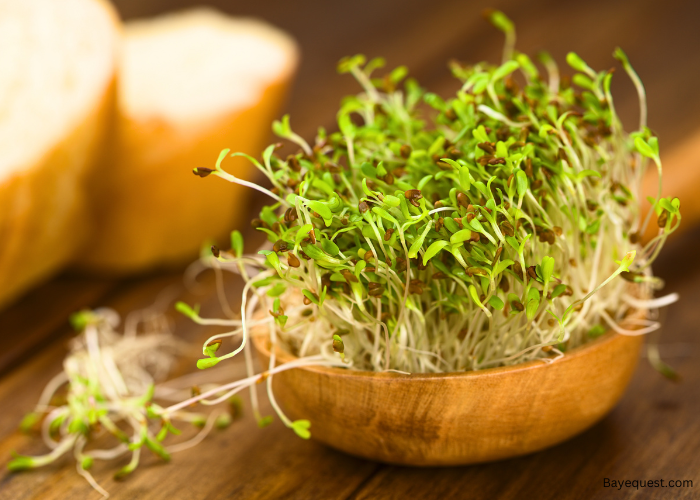
Benefits of Alfalfa for Horses
Now, let’s explore alfalfa’s top benefits:
High in protein
Alfalfa provides a rich source of protein, essential for muscle development, repair, and overall growth. This makes it ideal for performance horses, lactating mares, and growing foals.
Rich in calcium
The high calcium content supports strong bones and aids in muscle function, making alfalfa particularly beneficial for young and active horses.
Energy boost
Alfalfa is calorie-dense, offering a good source of energy for horses with high activity levels or those needing to gain weight.
Excellent fiber source
The fiber in alfalfa promotes healthy digestion and helps maintain gut health, reducing the risk of colic.
Palatability
Horses generally enjoy the taste of alfalfa, making it an excellent choice for picky eaters or those needing encouragement to eat.
Supports lactation
For lactating mares, alfalfa provides essential nutrients to support milk production and maintain body condition.
Balances grain diets
When fed alongside grains, alfalfa helps balance the diet by adding fiber and buffering stomach acid, reducing the risk of ulcers.
FAQs
Should you soak hay pellets?
Yes, hay pellets should also be soaked especially for horses prone to choking or with dental issues. Hay pellets are dense and can expand when they come into contact with moisture in the throat, increasing the risk of blockages. Soaking softens the pellets, making them safer to eat and easier to digest.
Do grass pellets have to be soaked?
Soaking grass pellets is not always necessary, but it’s a good precaution for certain horses. If your horse eats quickly, has trouble chewing, or has a history of choking, you will need to soak. Softened pellets reduce the risk of choking and improve digestibility.
Conclusion
In the end, whether or not to soak alfalfa pellets depends on your horse’s individual needs.
Soaking is a simple step that can prevent choking, improve digestion, and boost hydration.
However, if your horse has no history of feeding problems and prefers dry pellets, soaking may not be necessary.
Always prioritize safety and consult your vet to determine the best feeding routine for your horse’s health and well-being.




